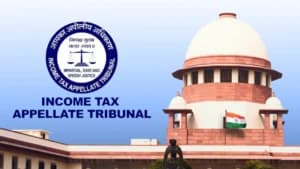The Supreme Court of India has set aside the Tripura Government’s decision to cancel the ongoing recruitment process for Enrolled Followers in Tripura State Rifles (TSR). The court ruled that the cancellation was arbitrary and illegal since the recruitment was already conducted under statutory rules.
Background of the Case
The dispute arose after the State Government of Tripura issued an “Abeyance Memorandum” on March 14, 2018, halting all recruitment processes. Later, on August 20, 2018, it issued a “Cancellation Memorandum”, scrapping the ongoing TSR recruitment under a newly introduced New Recruitment Policy (NRP).
The recruitment in question involved 506 vacancies of Enrolled Followers, divided into an inside-state quota (372 posts) and an outside-state quota (134 posts). Recruitment rallies were held in 2016, followed by physical tests, written exams, and interviews. By 2017, merit lists were prepared, and character verification was underway.
However, before final appointments could be issued, the new government stopped the process, citing the new policy that abolished interviews for Group-D posts.
In 2019, the Tripura High Court upheld the cancellation, stating that the government could change its recruitment policies in public interest. It also ruled that candidates had no absolute right to appointment.
Read also:- Madhya Pradesh High Court Warns Lawyer Over Indecent Language, Seeks Report on Injured Victim
The appellants challenged the High Court ruling before the Supreme Court. After examining the records, the Court noted:
- The recruitment was carried out under the Tripura State Rifles Act, 1983 and Recruitment Rules, 1984, which have statutory backing.
- The process had reached an advanced stage with merit lists and character verification already completed.
- The New Recruitment Policy (NRP) of 2018 was only an executive order and could not override statutory rules.
Quoting from the judgment, the Court observed:
“Executive instructions cannot supplant statutory rules. They may supplement them, but recruitment carried out under the statute cannot be cancelled merely because of a new policy.”
Read also:- Madhya Pradesh High Court Warns Lawyer Over Indecent Language, Seeks Report on Injured Victim
The Court also held that applying the NRP retrospectively amounted to “changing the rules of the game after the game had begun.” Since interviews had already been conducted, the new policy abolishing interviews could not apply to the ongoing recruitment.
While the Court clarified that candidates do not gain an indefeasible right to appointment merely by being in the merit list, it said they had a legitimate expectation that the process would be completed fairly. The State failed to justify its cancellation move on grounds of larger public interest.
The Supreme Court allowed the appeals, quashing the Abeyance Memorandum (March 2018) and Cancellation Memorandum (August 2018). The State of Tripura has been directed to complete the recruitment process for Enrolled Followers within a fixed time frame.
Case: Partha Das & Ors. vs. State of Tripura & Ors.
Case Type: Civil Appeals (Nos. 4426–4466 of 2023 and 4473–4479 of 2023)
Appellants:
- Partha Das & Others
- Sujan Roy & Others
Respondents:
- The State of Tripura & Others














